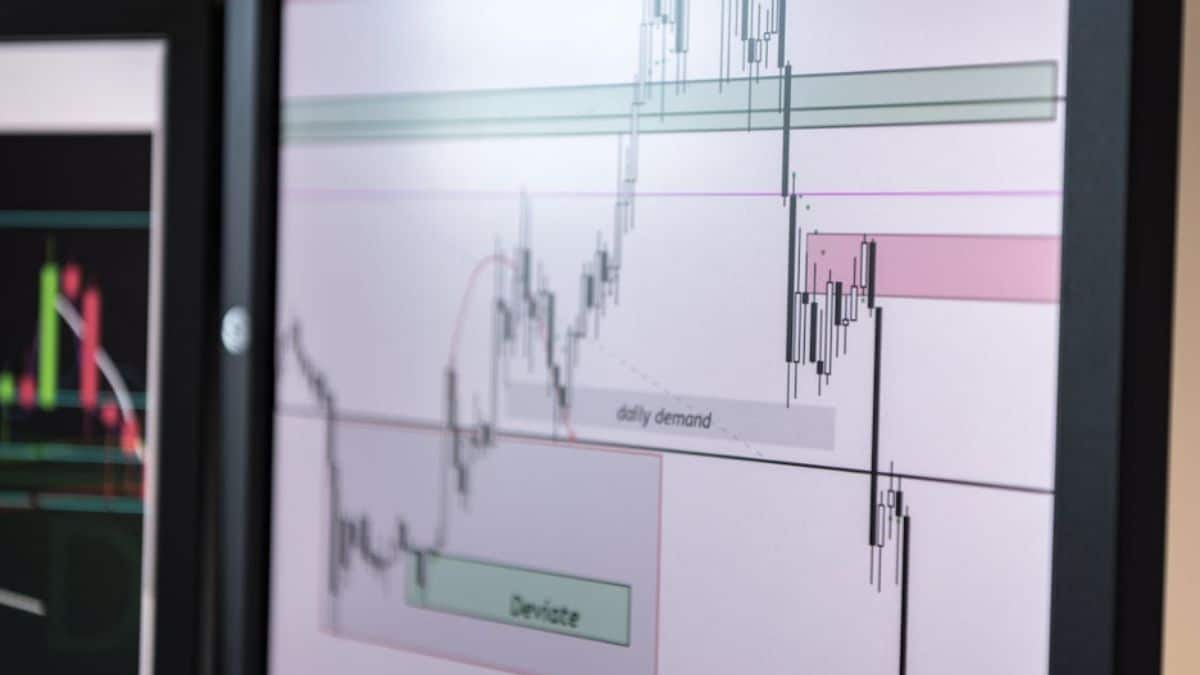Commodity trading has always been at the forefront of technological advancements, constantly integrating new tools and strategies to gain a competitive edge. In recent years, the emergence of quantum artificial intelligence (AI) has brought a groundbreaking revolution to the world of commodity trading. By harnessing the power of quantum computing and combining it with the capabilities of artificial intelligence, quantum AI has opened up a realm of possibilities for traders, enabling them to make more informed decisions and achieve superior results.
Understanding Quantum AI: A Brief Overview
Before diving into the advancements of quantum AI in commodity trading, it is essential to gain a basic understanding of this exciting technology. Quantum AI is the fusion of quantum computing and artificial intelligence, with the goal of leveraging quantum mechanics’ principles to optimize AI algorithms and improve computational efficiency. While classical computers use bits to store and process information, quantum computers use quantum bits, or qubits, which can exist in multiple states simultaneously. This quantum parallelism allows for unprecedented processing power and the ability to solve highly complex problems more efficiently than classical computers.
Quantum AI holds immense potential for revolutionizing various industries, including finance, healthcare, and transportation. By harnessing the power of quantum computing, AI algorithms can be enhanced to tackle complex optimization problems and process vast amounts of data with unparalleled speed and accuracy. This opens up new possibilities for solving real-world challenges and driving innovation.
The Concept of Quantum AI
At its core, quantum AI seeks to leverage the unique properties of quantum computing to enhance AI algorithms. Traditional AI techniques often face limitations due to the large volumes of data they need to process and the complexity of optimization problems. Quantum AI aims to overcome these limitations by exploiting the parallelism and superposition properties of quantum computing. By utilizing qubits, quantum AI algorithms can process vast amounts of data and perform computations more quickly and accurately.
One of the key concepts in quantum AI is quantum superposition. In classical computing, bits can only represent either a 0 or a 1. However, qubits can exist in a superposition of both states simultaneously. This means that a qubit can represent a combination of 0 and 1 at the same time, exponentially increasing the computational possibilities. By manipulating qubits and applying quantum gates, quantum AI algorithms can explore multiple solutions simultaneously, leading to faster and more efficient problem-solving.
The Evolution of Quantum AI
Quantum AI is a rapidly evolving field that has witnessed significant advancements in recent years. The journey began with theoretical research and progressed to practical implementations. Researchers are continuously exploring new ways to leverage quantum mechanics to enhance AI algorithms. As quantum computers become more accessible, the development of quantum AI is expected to accelerate, opening up new avenues for innovation in various industries, including commodity trading.
One of the breakthroughs in quantum AI was the development of quantum machine learning algorithms. These algorithms leverage the power of quantum computing to process and analyze complex datasets, enabling more accurate predictions and insights. Quantum machine learning holds the potential to revolutionize fields such as finance, where accurate predictions are crucial for making informed investment decisions.
Another area of interest in the evolution of quantum AI is quantum neural networks. Inspired by classical neural networks, quantum neural networks aim to utilize the principles of quantum computing to enhance learning and pattern recognition capabilities. By leveraging the parallelism and superposition properties of qubits, quantum neural networks can process and analyze data in a more efficient and powerful manner, leading to improved performance in tasks such as image recognition and natural language processing.
As quantum AI continues to evolve, researchers are also exploring the potential of quantum reinforcement learning. Reinforcement learning is a branch of AI that focuses on training agents to make decisions based on feedback from their environment. Quantum reinforcement learning aims to leverage the power of quantum computing to enhance the training process, allowing agents to learn and adapt more quickly and effectively.
Overall, the evolution of quantum AI is an exciting journey that holds immense potential for transforming various industries. As researchers continue to push the boundaries of quantum computing and artificial intelligence, we can expect to see groundbreaking advancements that will shape the future of technology and innovation.
Quantum AI in the World of Commodity Trading
Commodity trading is an inherently complex and dynamic environment. Traders face numerous challenges in analyzing vast amounts of data, identifying trading opportunities, and managing risk effectively. Quantum AI has emerged as a potential solution to address these challenges and revolutionize commodity trading practices.
Commodity trading, with its intricate web of supply, demand, and geopolitical influences, necessitates advanced tools for optimal decision-making. Enter the world of quantum AI, which offers unparalleled speed and analytical depth in processing market data. Traders and analysts who observe Quantum AI’s effectiveness firsthand often find themselves better equipped to anticipate price fluctuations, manage risks, and exploit opportunities in the commodities market. As the sector continues to evolve, the integration of quantum AI promises a more informed and agile approach to the complexities of commodity trading.
The Role of Quantum AI in Commodity Trading
Quantum AI has the potential to revolutionize commodity trading by improving trading strategies, optimizing risk management, and enhancing decision-making processes. By leveraging the computational power of quantum computers, traders can analyze more data in less time, enabling them to identify patterns, trends, and correlations that may go unnoticed using traditional approaches. This enhanced data analysis leads to more accurate predictions and better-informed trading decisions.
The Impact of Quantum AI on Trading Strategies
Quantum AI has the potential to transform trading strategies by unlocking new possibilities and improving their performance. Traders can utilize quantum AI algorithms to uncover hidden trading signals, leading to more profitable trade opportunities. Additionally, quantum AI can optimize portfolio allocation by considering a broader range of factors and reducing risk exposure. These advancements in trading strategies can potentially increase profitability and create a competitive advantage.
The Advancements of Quantum AI in Commodity Trading
As quantum AI continues to evolve, significant advancements are being made in its application to commodity trading. These advancements hold immense promise for the future of the industry.
Recent Developments in Quantum AI for Trading
Researchers and industry professionals are actively exploring the integration of quantum AI into commodity trading systems. Exciting developments include the creation of quantum AI-based trading algorithms that can analyze market data in real-time and adapt to changing market conditions. These algorithms leverage the potential of quantum computing to process vast amounts of data and generate insights faster, enabling traders to react swiftly to market dynamics.
Future Prospects of Quantum AI in Commodity Trading
The future prospects of quantum AI in commodity trading are incredibly promising. As quantum computers become more powerful and accessible, traders will have access to unprecedented computational capabilities. This will enable the development of advanced quantum models that can simulate and forecast complex market scenarios accurately. Moreover, quantum AI can enhance risk management strategies by accurately assessing market risks and optimizing hedging strategies, ensuring greater resilience in commodity trading operations.
The Challenges and Solutions in Implementing Quantum AI
While the potential benefits of quantum AI in commodity trading are undeniable, implementing this emerging technology comes with its own set of challenges. Recognizing and addressing these challenges is crucial to realizing the true potential of quantum AI in the industry.
Potential Obstacles in Quantum AI Adoption
One significant obstacle is the current state of quantum technology. Quantum computers are still in their nascent stages, and building stable and reliable quantum systems presents significant engineering and technological challenges. Moreover, the talent pool proficient in quantum computing and AI is relatively limited, making it challenging to deploy and maintain quantum AI systems within commodity trading firms.
Overcoming Challenges: Solutions and Innovations
Efforts are underway to overcome these challenges and pave the way for widespread adoption of quantum AI in commodity trading. Collaboration between quantum computing researchers and industry professionals is essential to drive innovation and address technological limitations. Additionally, investments in quantum education and training programs can help expand the talent pool and accelerate the integration of quantum AI technologies into commodity trading operations.
The Implications of Quantum AI on Commodity Markets
The advancements of quantum AI in commodity trading have far-reaching implications for commodity markets as a whole. These implications extend beyond individual trading strategies and have the potential to reshape the entire market landscape.
Quantum AI and Market Efficiency
Quantum AI can significantly enhance market efficiency by improving the speed and accuracy of trading decisions. The ability to process large volumes of data and identify patterns in real-time can lead to more efficient price discovery, reducing information asymmetry between market participants. Consequently, quantum AI can contribute to more transparent and liquid commodity markets.
Quantum AI and Market Predictability
With its advanced data analysis capabilities, quantum AI has the potential to improve market predictability. By accurately identifying market trends and patterns, quantum AI algorithms can generate more reliable price predictions. This increased predictability can benefit both traders and investors by enabling them to make more confident and profitable trading decisions.
In conclusion, the advancements of quantum AI in commodity trading hold promise for transforming the industry. With the fusion of quantum computing and artificial intelligence, traders can gain a competitive advantage by leveraging the power of quantum parallelism and advanced data analysis. However, challenges in quantum technology adoption must be addressed, and collaborations between researchers, industry professionals, and educational institutions are crucial. As quantum AI continues to evolve, its impact on commodity markets is likely to be substantial, enhancing market efficiency and predictability for the benefit of all participants.


